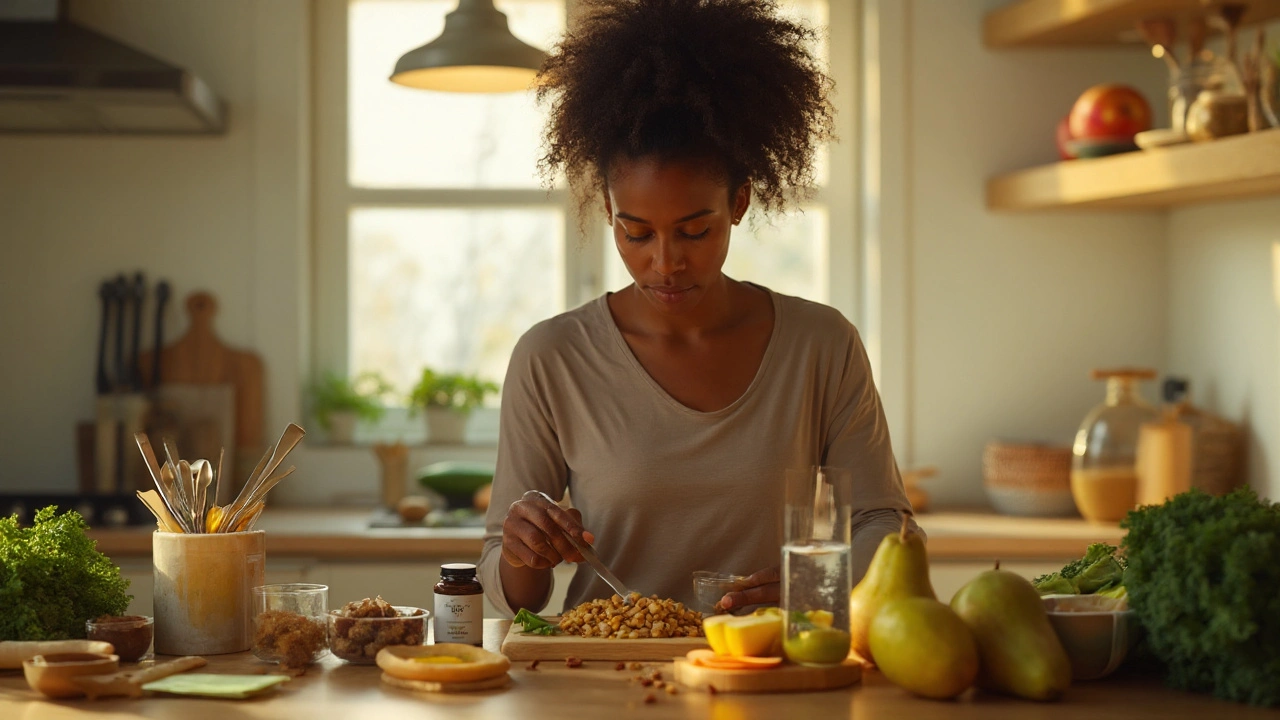Bone Health: Essential Tips for Strong Bones
Ever wonder why some people seem to age without breaking a bone while others keep popping up with fractures? The secret is simple – they pay attention to the basics of bone health. Below you’ll find straight‑forward advice you can start using today, no fancy jargon needed.
Key Nutrients for Bone Strength
The first step is feeding your skeleton the right building blocks. Calcium is the headline star. Dairy products like milk, yogurt, and cheese are classic sources, but fortified plant milks, leafy greens (think kale and bok choy), and almonds work just as well. Aim for about 1,000 mg a day if you’re under 50, and a bit more after that.
Vitamin D is the sidekick that helps your body absorb calcium. Sunlight is the cheapest source – ten minutes on a sunny day can boost your levels. If you’re indoors a lot, consider a supplement of 1,000 IU daily, especially in winter months.
Don’t forget vitamin K2, magnesium, and phosphorus. A balanced diet that includes fish, nuts, whole grains, and colorful vegetables will usually cover these. If you’re vegan or have dietary restrictions, a multivitamin designed for bone health can fill gaps.
Lifestyle Habits That Protect Your Bones
Nutrition is only half the story. Weight‑bearing exercise tells your bones to stay dense and resilient. Simple moves like brisk walking, jogging, dancing, or climbing stairs do the trick. Aim for 30 minutes most days of the week.
Resistance training – using dumbbells, resistance bands, or body‑weight moves like squats and push‑ups – adds an extra boost. You don’t need a gym; a few minutes at home can make a noticeable difference over time.
Avoid smoking and limit alcohol. Both speed up bone loss and interfere with calcium metabolism. If you drink, keep it to a moderate level – that’s up to one drink a day for women, two for men.
Stay mindful of fall risk, especially as you get older. Keep walkways clear, use non‑slip mats in the bathroom, and make sure your lighting is adequate. Small changes can prevent big injuries.
When it comes to medications, some prescriptions (like long‑term steroids) can weaken bones. Talk to your doctor about bone‑protective options if you’re on such drugs.
Finally, regular check‑ups matter. A simple bone density test can tell you if you need extra support before a fracture happens.
Putting these steps together – balanced nutrition, consistent activity, and smart lifestyle choices – gives your skeleton the best chance to stay strong for life. Start with one change today, and build from there. Your future self will thank you when you’re still moving freely, no matter your age.
Boron Supplement Benefits for Bones, Brain, and Hormones: Safe Dosages, Food Sources, and Risks
What boron really does for bones, brain, and hormones. Evidence, safe doses, food sources, risks, and a simple plan to use it wisely in 2025.
More
